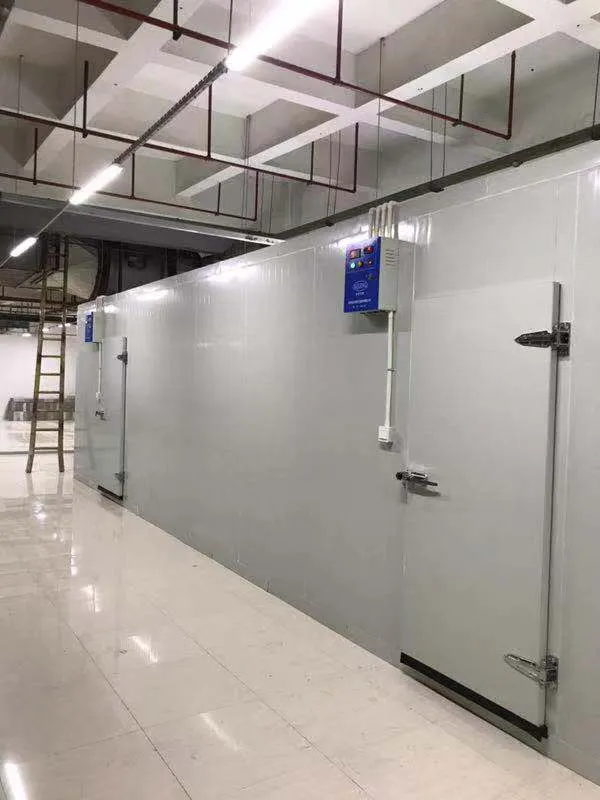monoblock refrigeration system
Understanding Monoblock Refrigeration Systems
Monoblock refrigeration systems are an essential component in the world of cooling technologies, widely utilized in various applications ranging from commercial refrigeration to residential air conditioning. Their unique design and functionality offer several advantages, making them an attractive choice for both manufacturers and consumers.
What is a Monoblock Refrigeration System?
A monoblock refrigeration system refers to a type of appliance where all the necessary components for refrigeration are housed within a single cabinet or unit. This includes the compressor, condenser, evaporator, and, in some cases, additional components like expansion valves and controls. The monoblock design contrasts with traditional systems where these components are often dispersed across different locations, requiring more complex installation and maintenance procedures.
Applications of Monoblock Refrigeration Systems
Monoblock refrigeration units are versatile and can be adapted for various applications. Common uses include
1. Commercial Refrigeration These systems are frequently used in supermarkets, convenience stores, and restaurants to keep food and beverages at safe temperatures. They can operate as stand-alone units or as part of a larger integrated refrigeration system.
2. Residential Cooling In homes, monoblock units are commonly found in window air conditioners or portable air conditioning systems. Their compact size and ease of installation make them suitable for apartments and smaller living spaces.
3. Transport Refrigeration Monoblock units are also used in refrigerated trucks and containers to ensure that perishable goods are maintained at the correct temperature during transport.
4. Industrial Applications In industrial settings, these systems can be used for process cooling, where temperature control is critical for manufacturing operations.
Advantages of Monoblock Refrigeration Systems
1. Compact Design The all-in-one structure of monoblock systems means they take up less space than traditional refrigeration systems. This is particularly advantageous in urban environments where space is at a premium.
monoblock refrigeration system

2. Ease of Installation Since the components come pre-assembled, installation is straightforward. This minimizes labor costs and the potential for errors during setup.
3. Energy Efficiency Modern monoblock refrigeration systems are designed to be energy efficient, often utilizing advanced technologies like inverter compressors. These features help to reduce energy consumption, resulting in lower operating costs for users.
4. Low Maintenance Requirements With fewer moving parts and integrated systems, monoblock units tend to require less maintenance compared to traditional refrigeration systems. This translates to less downtime and reduced costs over the year.
5. Improved Performance Monoblock designs can enhance the performance of the refrigeration system, offering faster cooling times and more reliable temperature control, which is essential in food preservation and other temperature-sensitive applications.
Challenges and Considerations
Despite their many advantages, monoblock refrigeration systems also come with some challenges. One such challenge is the limited capacity. Many monoblock units are not suitable for large-scale applications or heavy-duty use due to their design limitations. Additionally, if any component within the monoblock system fails, the entire unit may require service, potentially leading to higher repair costs.
Another consideration is the production and installation location. For some businesses, sourcing locally designed or manufactured monoblock systems can be an issue, impacting delivery times and costs.
Future Trends
As technological advancements continue to reshape the refrigeration industry, monoblock systems are likely to evolve further. Innovations in materials, compressors, and refrigerants will push the boundaries of efficiency and performance. The rise of smart technology integration also indicates a future where monoblock refrigeration systems can become part of a connected ecosystem, allowing consumers greater control and insight into their energy use.
Conclusion
Monoblock refrigeration systems present a compelling option for both commercial and residential cooling needs. Their compact design, ease of installation, and energy efficiency make them suitable for a wide range of applications. However, potential users should carefully consider their specific needs and the challenges associated with these systems. As advancements in technology continue to influence this field, monoblock refrigeration systems will likely play an increasingly vital role in the future of cooling solutions.
















































































































